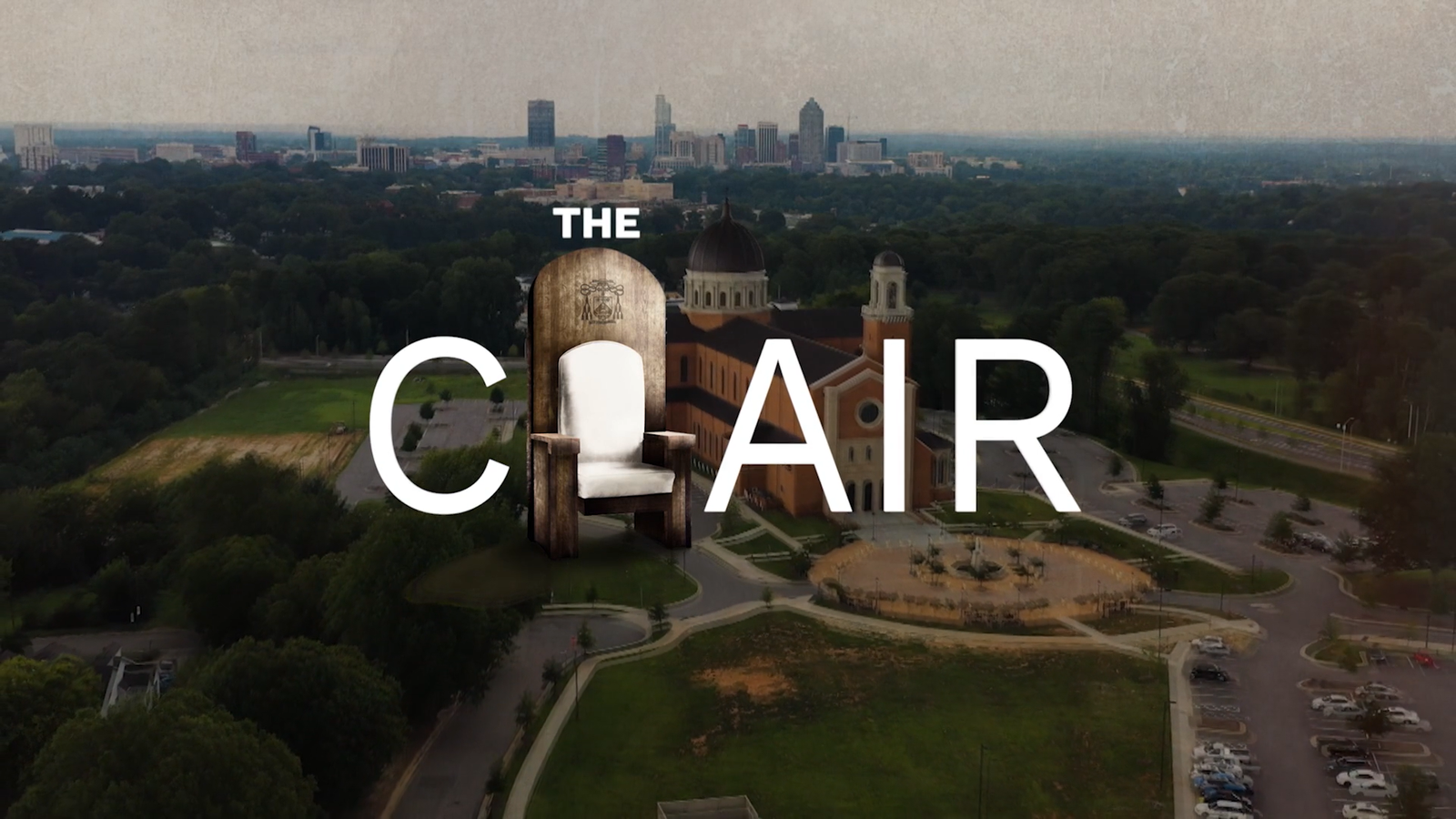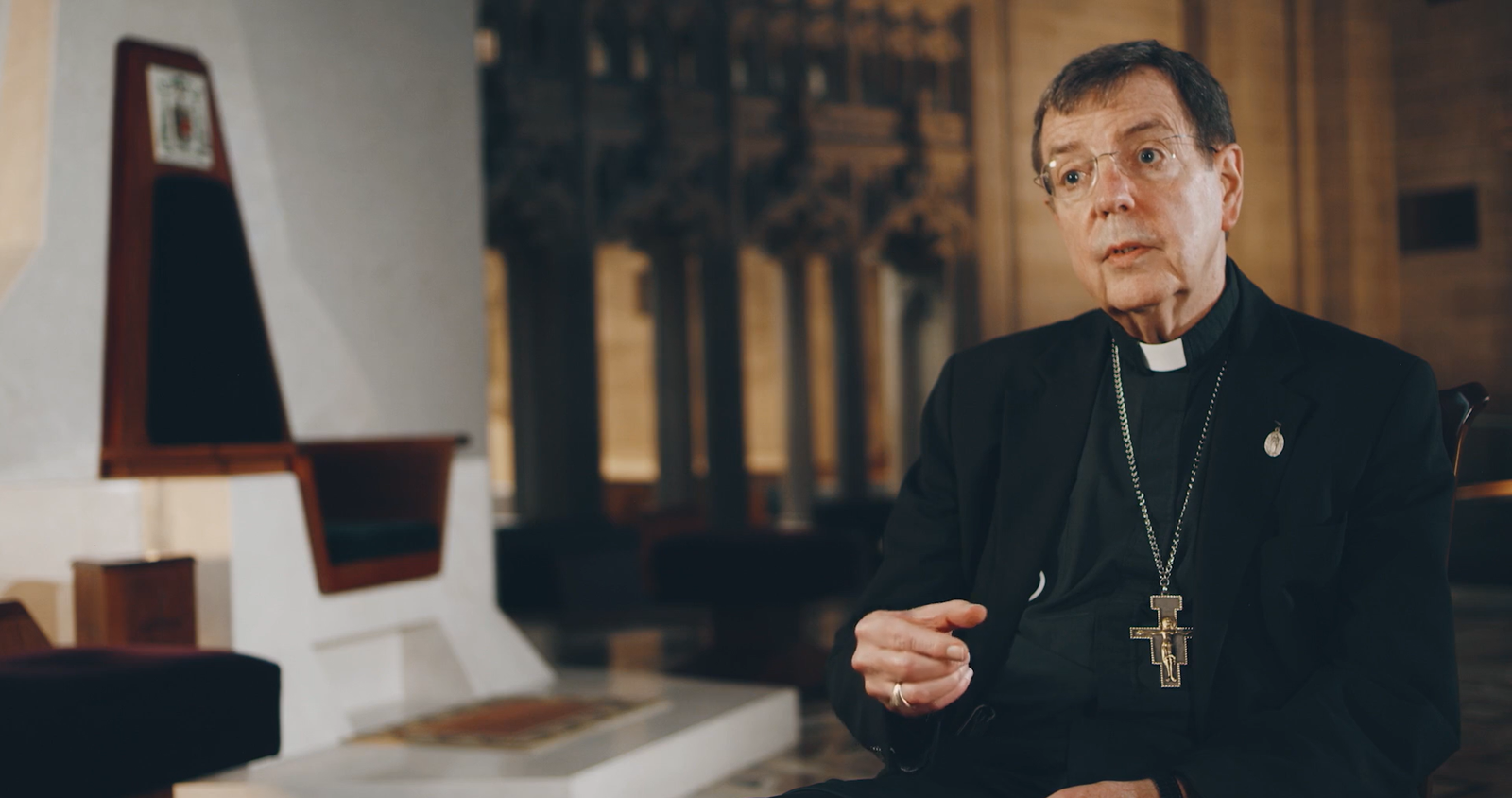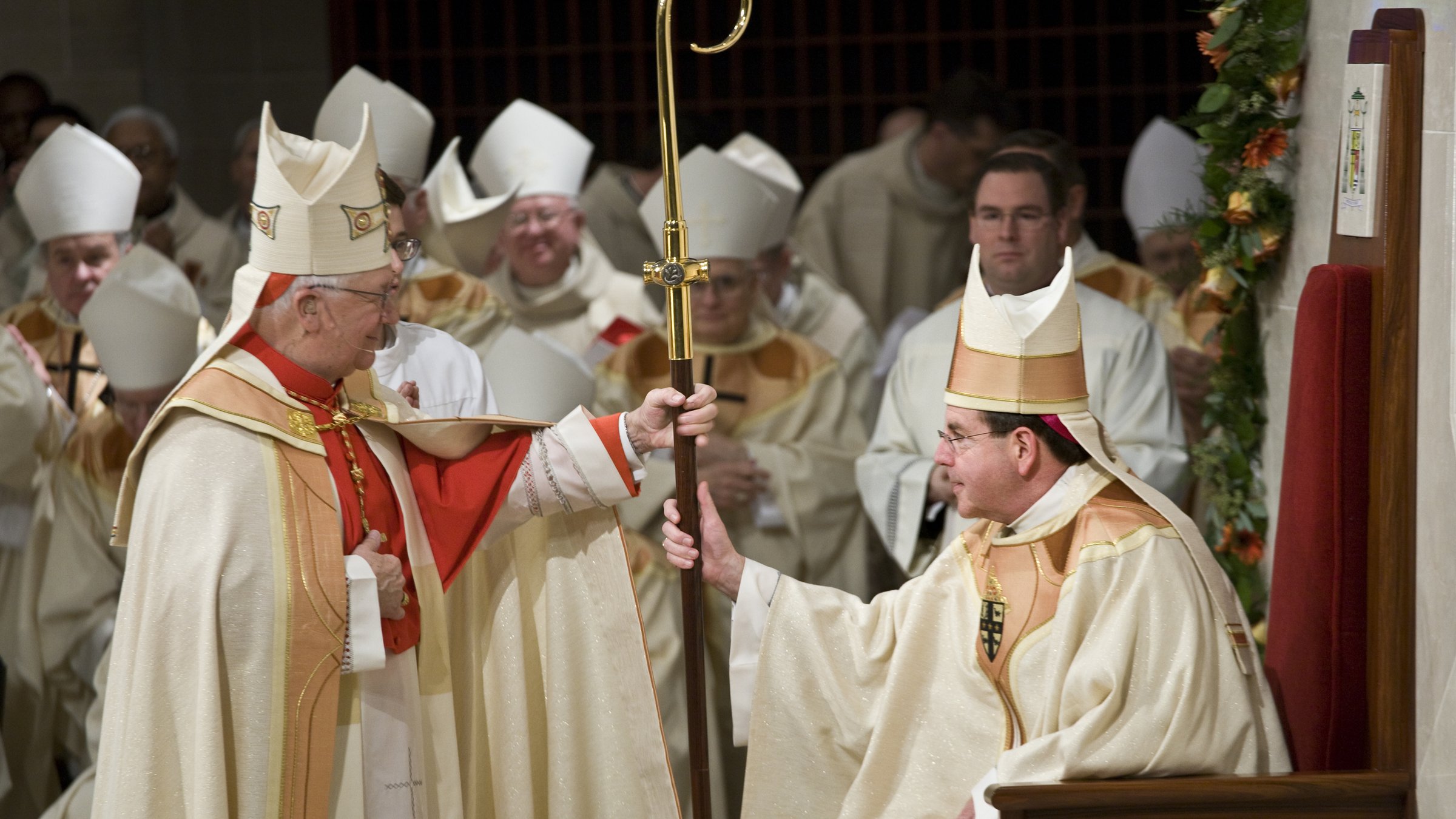Local episode of documentary series by DeSales Media features interviews with Archbishop Vigneron, cathedral rector
DETROIT — Bishops are successors of the apostles tasked with overseeing the Church's threefold mission of sanctifying, teaching and governing the people of God.
Archbishop Allen H. Vigneron’s apostolate has been highlighted in a recent episode of "The Chair," a series dedicated to exploring the history of the Catholic Church in America through its cathedrals, the chairs that reside in each one, and the bishop who sits in the chair as a living representative of the unbroken tradition of the Church over two thousand years.
In a 22-minute episode set in Detroit, historians and experts, along with Archbishop Vigneron and Fr. J.J. Mech, rector of the Cathedral of the Most Blessed Sacrament, explore the role of the Catholic Church in Detroit and the bishops and archbishops who have been at its helm.
The series is produced by DeSales Media with 85 available episodes, spanning 10 seasons. The Detroit episode is part of the eighth season focused on the Midwest.
The narrator acknowledges Detroit's status as a long leader in industry, music and architecture while also being the see city of the Archdiocese of Detroit.

Archbishop Vigneron, born in 1948 as the eldest of six kids, states in a sit-down interview for the documentary that the Motor City is different today than how it was when he was a boy.
“We’ve come by and large to be at peace that it is different,” Archbishop Vigneron said. “God will help us with that. I think that’s what we are about; we have gotten to a point where we are not preoccupied with mourning the past, but involved in trying to build a future.”
This is as much true for civic life as it is for the life of the Church, the archbishop says. The episode explores how the history of Detroit is intertwined with the Church, starting with the establishment of the Church (later Basilica) of Ste. Anne in 1701 — the year of the establishment of the city of Detroit — making it the second-longest continuously operating parish in the United States.
The historians trace the role of the missionaries and bishops of Detroit, from Fr. Gabriel Richard and Blessed Solanus Casey to Detroit’s first archbishop, Edward Mooney. This line continues with Archbishop Vigneron today, who has made his focus the new evangelization.
“If we are going to be this Church on mission, the basic cell of the life of the Church is the family. So we are devoting a lot of resources to helping families do that,” Archbishop Vigneron said. “People want to be happy in their families.”
Archbishop Vigneron also briefly mentions the archdiocese’s approach to evangelization, the threefold process of "Encounter, Grow, Witness."

“(That is to) meet Jesus, love Jesus, share Jesus,” Archbishop Vigneron said. “I think the witness part is what helps incentivize people, because if there are those they respect who stand up and say, ‘Life is better because I’ve embraced the cross, I have embraced dying to self, I have embraced giving myself over to Christ,’ that will incentivize people taking that step themselves.”
Tom Rzeznik, Ph.D., professor of history at Seton Hall University, said that in the early 20th century, Detroit became a Catholic powerhouse, and its bishops held national statures.
With this stature, though, came immense responsibility, Rzeznik explained. Since Fr. Richard, the burden of the leader of the Catholic Church in Detroit has been great. The bishops have overseen situations ranging from financial crises and depressions, war, industry booms and then slowdowns, as well as the local impact of changes in the Church such as the Second Vatican Council.
“The history of the diocese is a microcosm for the history of the Catholic Church in the United States with all of its triumphs, tension and transformations,” Rzeznik said.
However, despite all of this, the episode captures the resiliency of the Archdiocese of Detroit and the city of Detroit — a city and people that continuously hopes for better things and rises from the ashes.
'The Chair: Detroit, Michigan'
The Chair: Detroit, Michigan, produced by DeSales Media, is available to watch for free at https://thechair.com.
Copy Permalink
Culture and Media Bishops












